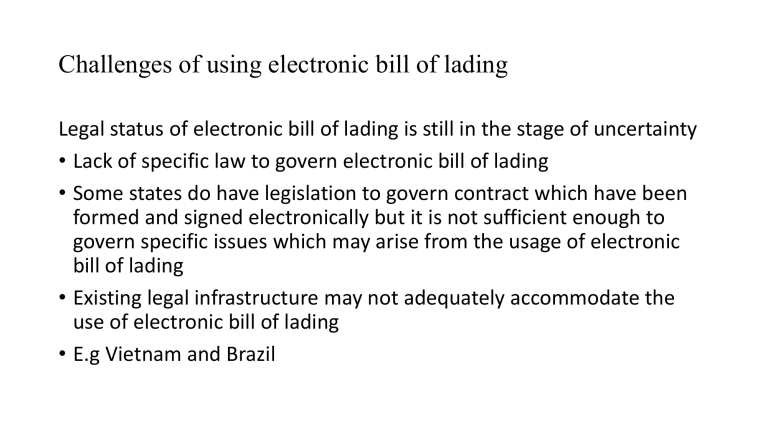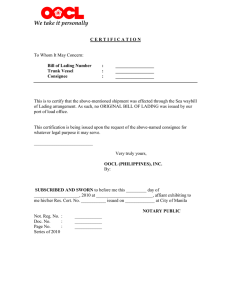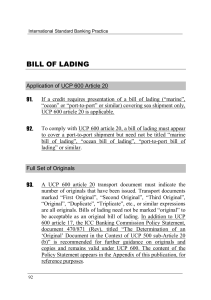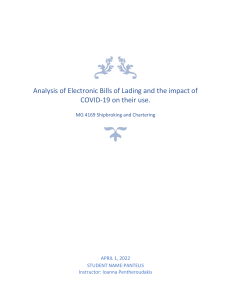Electronic Bill of Lading Challenges: Legal & Systemic Issues
advertisement

Challenges of using electronic bill of lading Legal status of electronic bill of lading is still in the stage of uncertainty • Lack of specific law to govern electronic bill of lading • Some states do have legislation to govern contract which have been formed and signed electronically but it is not sufficient enough to govern specific issues which may arise from the usage of electronic bill of lading • Existing legal infrastructure may not adequately accommodate the use of electronic bill of lading • E.g Vietnam and Brazil Challenges of using electronic bill of lading Failure of Rules and system to make electronic bill of lading universal and prevalent • Rotterdam Rules = only 24 countries have signed the convention and only one country have ratified it • Hague Rules and Hague-Visby Rules = were not drafted with computer technology in mind • Hamburg Rule = not adopted by major shipping states • UNCITRAL Model Law on Electronic Commerce= disregarded by several states such as Nigeria and Maldives Challenges of using electronic bill of lading • CMI Rules = reception among those involved in maritime industry is lukewarm • Bolero System= lacked the support of banking industry and services only confined to its members • SEADOCS = failed in attempting a move towards fully electronic based bill of lading • Ess-Databridge = services only confined to its members • Korea Trade Net = only electronic bill of lading which have been issued by registries that have been placed under the supervision of government has legal implications Challenges of using electronic bill of lading Reliance on Electronic Data Interchange (EDI) system • Doesn’t guarantee full security in transmitting the information by itself • Cost of setting up, maintaining the system and provide additional electronic protections are expensive • Small companies couldn’t afford to implement the system • Rigorous standard Challenges of using electronic bill of lading Other challenges in legal aspects • Many jurisdiction are developed in the period where paper was the main essence of contract • Uncertainty on whether electronic bill of lading has evidential value • Authenticity of digital signature • Uncertainty on whether electronic bill of lading is merely evidence of contract or it is a contract of carriage by itself.



